
Introduction: Living a Fulfilling Life
It wasn’t until my fifties that I truly understood the profound importance of living a fulfilling life. In my early years, I faltered, unaware of its value, and suffered for it.
If you’ve ever wondered how to find fulfillment, you’re not alone. Many people aspire to a meaningful, fulfilling life but struggle to achieve it. Even those who don’t actively pursue it usually cherish the joy and contentment it brings once achieved.
This guide is for anyone striving to live a more fulfilling life, whatever that looks like for you.
It explores nine key factors for it—four barriers to overcome and five essential practices to adopt. It concludes with a simple yet effective approach that aligns with your fulfillment journey.
Photo by Peter Conlan on Unsplash
Key Takeaways:
- Understand that personal fulfillment profoundly elevates your quality of life
- Know that true fulfillment arises from within, not from the world around us
- Discover ways to overcome common obstacles to living a fulfilling life
- Explore essential practices to embrace a more fulfilling life.
- Recognize that living a fulfilling life is tied to doing what you love, despite the odds
Contents
What Does It Mean to Live a Fulfilling Life?
Key Insight from This Section:
Living a fulfilling life means aligning with your true self, growing purposefully, and finding lasting meaning beyond fleeting happiness. It’s a personal journey shaped by self-awareness, intentional choices, and letting go of common misconceptions.
What We Explore:
- Meaning of a Fulfilling Life
- Signs You’re Not Living Fully
- Personal Fulfillment Concept
- Happiness vs Fulfillment
- Misconceptions About Fulfillment
Meaning of Living a Fulfilling Life
So, what is considered a fulfilling life? Living a fulfilling life means different things to different people, so there isn’t a single straightforward answer.
In general, when your life is fulfilling,
- You may be living with a compelling purpose and a clear vision. Your life has a deep meaning to you.
- You may be fully alive and delighted with how you live – profoundly and peacefully connected to your true self.
- You may be following your passions and accomplishing personal goals. This includes engaging in activities that bring happiness and contentment, continually striving to improve yourself, and viewing challenges as chances to grow.
- You may nurture meaningful relationships and positively impact others through authenticity and deep bonds.
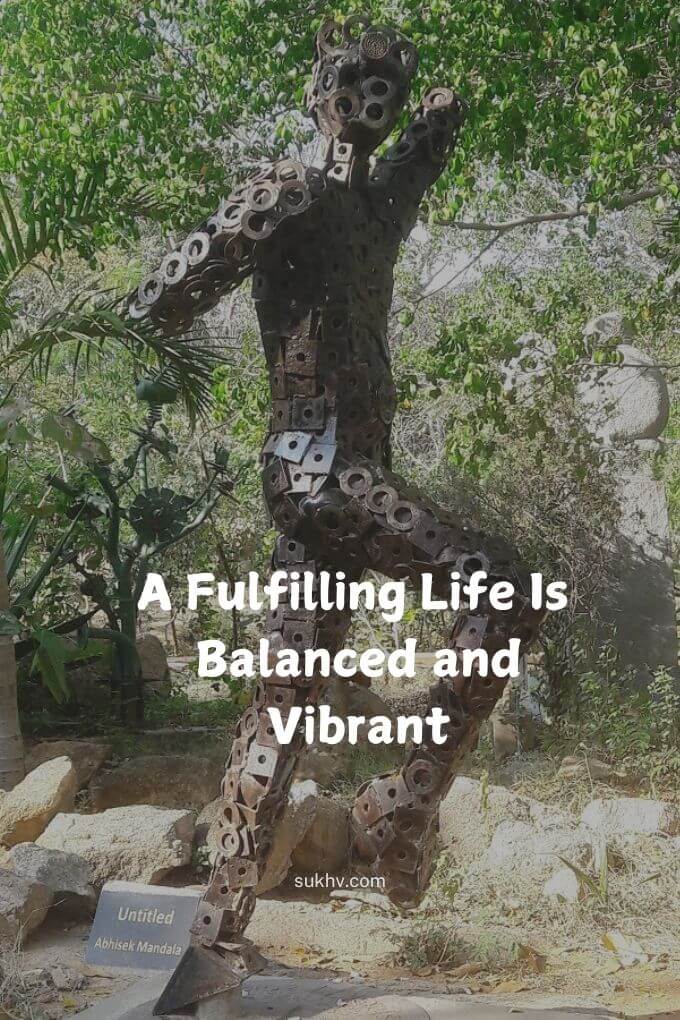
- You may be successfully balancing work and relaxation, looking after your well-being, appreciating your possessions, and working to leave a lasting legacy.
Signs You’re Not Living a Fulfilling Life
Individuals pursue dreams and targets, believing the daily steps will bring them closer to true contentment. They often explore different options, like changing careers, picking up new hobbies, or starting new relationships. Yet, despite their efforts, that feeling of satisfaction usually seems out of reach. They may still feel a sense of emptiness.
To appreciate a fulfilling life better, we must look at its opposite. A normal person like me can best understand how to live a fulfilling life only after experiencing a hell of sadness and misery.
So, what does an unfulfilled life look like?
- A persistent feeling of boredom or emptiness is a red flag.
- Another indication of an unfulfilled life includes experiencing a pervasive dissatisfaction with one’s circumstances.
- You may also not live to your true potential if you do daily tasks without enthusiasm, purpose, or passion, or suffer from a lack of motivation to pursue personal goals.
- Another sign of a lack of fulfillment could be difficulty finding meaning or joy in relationships.
The Concept of Personal Fulfillment
When I took early retirement from my job in a public sector bank, I was posted as a branch manager. My second man had then asked me, “Sir, you still have 19 years of service left, and you will surely reach the post of DGM. Why are you leaving so soon?”
Why did I leave the reputed job with a good salary, job security, and the prospect of reaching such a senior post? I was not fully aware of it then, but something was lacking in my life that my successful career could not fulfill.
Over time I understood that my fulfillment is not about material achievements or career success.
So, what do people generally find most fulfilling in life? What is the personal fulfillment that satisfies one’s soul? Let’s dive a bit deeper.
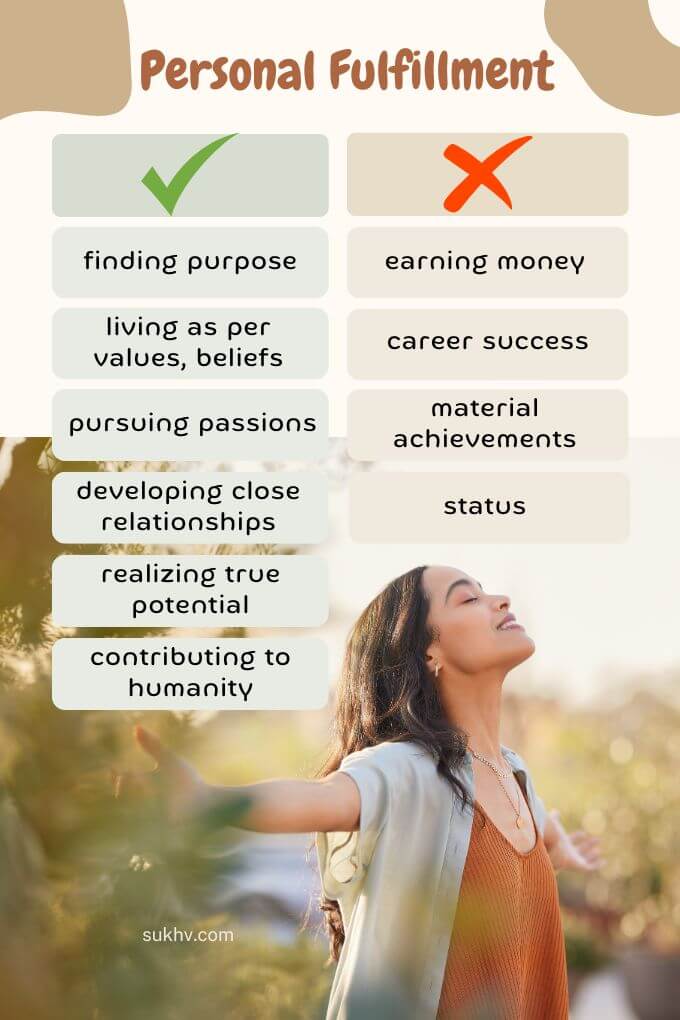
Personal fulfillment is the contentment one experiences from aligning with one’s true purpose and realizing one’s full potential. It’s a dynamic and ongoing journey of self-discovery and growth.
It originates from living according to one’s values, beliefs, and inner desires, developing close relationships, pursuing passions, overcoming challenges, working toward and achieving goals aligned with authentic self, and positively contributing to society.
To achieve personal fulfillment, understand what matters to you and what brings you joy and satisfaction, and work continuously to grow in that direction.
As in my example above, be willing to step outside your comfort zone to have new experiences and opportunities for self-discovery.
Personal Fulfillment is Different for Everyone
People take different roads seeking fulfillment and happiness. [. . .]
H. Jackson Brown, Jr.
Personal fulfillment is a deeply personal journey influenced by one’s health, career, relationships, personal growth, and other factors.
It involves the path in life that you sincerely want to tread. The path may not be smooth but it leads to happiness, emotional fulfillment, deep contentment, and overall well-being. And don’t be surprised if you find yourself getting uplifted spiritually in the process.
Difference Between Happiness and Fulfillment
Many people think that fulfillment is the same as happiness. But it is not so.
- Happiness is a transient emotion of joy and satisfaction triggered by a positive stimulus or event; it may come and go. In contrast, fulfillment is a more stable and enduring state of contentment that arises from living according to one’s core values and actualizing one’s unique potential.
- Happiness depends on external factors or circumstances – a successful career, a loving relationship, or material possessions. On the other hand, fulfillment originates from a deeper sense of purpose and meaning derived from personal growth and contributing to others’ welfare.
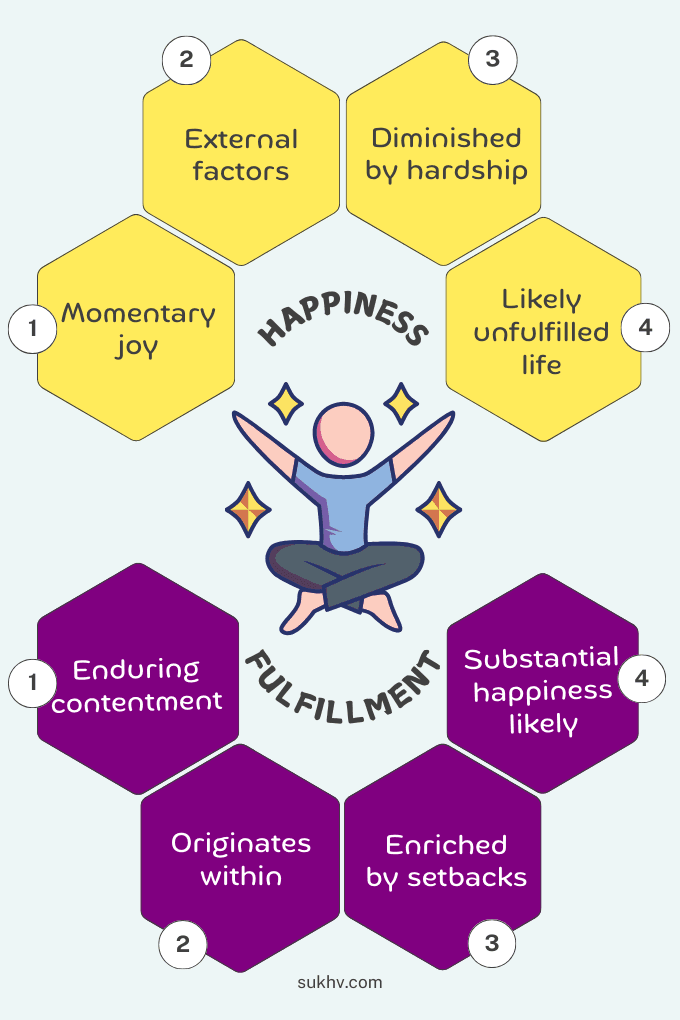
- Hardship diminishes happiness which is easily influenced by circumstances. On the other hand, fulfillment is enriched by overcoming setbacks and challenges on the chosen path to personal growth.
- Example: You may find happiness in your job if you receive a good salary and status. But you feel fulfilled if your work contributes to a higher cause and makes you feel a part of something bigger than yourself.
Fulfillment is More Important than Happiness
Most people know, think, and talk about happiness more than fulfillment. However, fulfillment, which stems from a sense of purpose and achievement, is more significant than the temporary emotion of joy, which depends on external circumstances.
You may find happiness in a compatible relationship but you need to connect with yourself to achieve fulfillment.
Fulfillment is a goal superior to happiness as it leads to a deeper, more lasting satisfaction. Pursuing happiness alone means you are not set to make the most of what you have and run the risk of an empty, unfulfilled life. But if you devote your life to achieving fulfillment, you will likely find substantial happiness.
Focusing on fulfillment means you are motivated by personal growth and authenticity rather than fleeting pleasures or seeking approval from others. While happiness can provide momentary joy, fulfillment nurtures enduring inner peace, strength, and deep self-realization.
While fulfillment runs deeper than momentary pleasure, exploring simple ways to be happier can still support your journey, as happiness often opens the door to a more meaningful life.
Common Misconceptions About Personal Fulfillment
The following are common misconceptions many people have about finding fulfillment in life. Then, there are short explanations of why these misconceptions prevent them from living a fulfilling life.
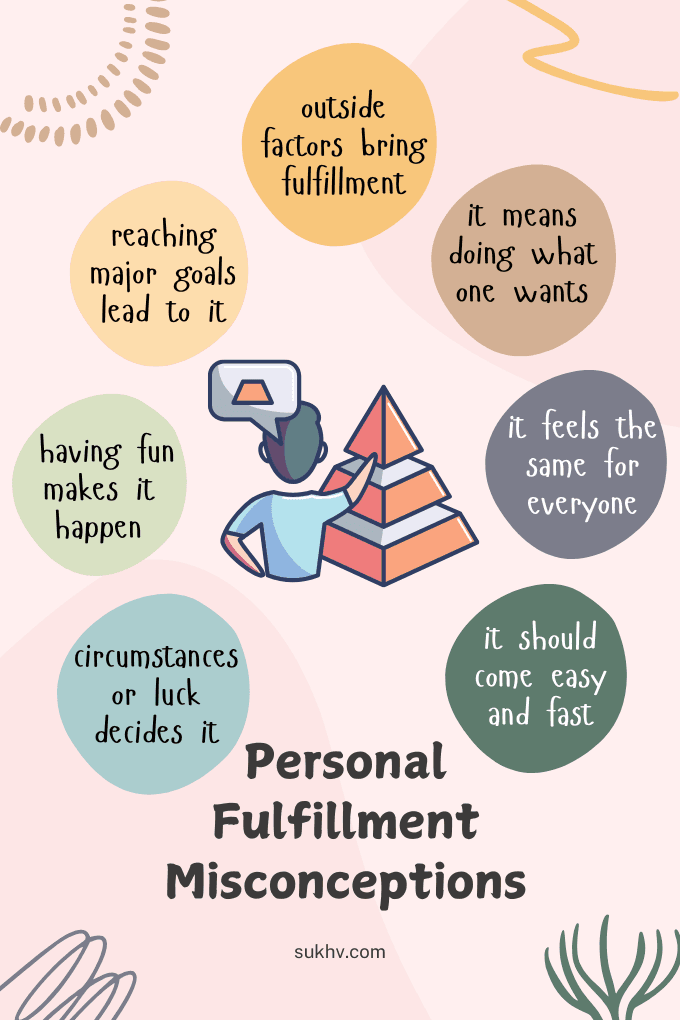
- A major one is that fulfillment comes mainly from external sources like wealth and material possessions, love, status, praise from others, or societal approval and validation.
However, beyond the income needed for financial security, accumulating more wealth doesn’t necessarily translate to increased happiness. Even if you are single or without love, the human spirit retains the capacity for profound joy and fulfillment.
Instead, by chasing after external things or succumbing to societal expectations, individuals often neglect their inner self, purpose, and meaningful connections, which are crucial for true fulfillment, resulting in frustration.
- Another misconception is that reaching major goals like finding a life partner, having children, or building a successful career leads to fulfillment.
This false notion of constantly seeking out new achievements can result in continuous pressure leading to exhaustion and discontent. These achievements may give temporary pleasure but they do not create enduring contentment.
In reality, personal fulfillment is an ongoing and delightful journey of self-discovery and growth. There’s nothing wrong in pursuing goals but they should align with your values and passions.
. - Additionally, some think fulfillment comes from doing whatever one wants without constraint.
However, studies suggest that fulfillment arises from having a sense of purpose, clear goals, and self-discipline. Individuals often find fulfillment when they have obligations to fulfill and valuable contributions to make.
. - Another common mistake is believing that fulfillment comes from partying, entertainment, and constant excitement.
While enjoyable activities are important, true fulfillment is found in nurturing meaningful relationships, assisting others, utilizing one’s skills, and personal growth.
. - Some people falsely think that fulfillment is the same for everyone.
The reality is that personal fulfillment is deeply personal, subjective, and unique to each person. What may deeply satisfy one person may not be of any interest to another. Personal fulfillment necessitates self-reflection and harmonizing with one’s true self.
. - Some people believe that achieving personal fulfillment depends only on circumstances or luck.
This misbelief causes a person to ignore the importance of mindset and personal growth in pursuance of fulfillment. It just results in inaction and frustration.
. - Finally, some believe that fulfillment should come quickly and effortlessly.
But the truth is that fulfillment is an ongoing journey of self-exploration, finding meaning in personal experiences, surmounting obstacles, and endeavoring to make the most of talents and opportunities
Getting rid of such misconceptions is essential to living a fulfilling life.
Why Do We Seek Fulfillment?
Key Insight from This Section:
Living a fulfilling life rooted in purpose, passion, and connection is essential for lasting well-being, while lack of fulfillment leads to deep emotional and mental dissatisfaction.
What We Explore:
- Importance of Fulfillment
- Impact of Unfulfilled Life
Importance of Seeking Fulfillment
Achieving fulfillment is the primary goal of human life. We seek fulfillment as it signifies realizing our deepest desires and aspirations and brings a holistic sense of well-being and joy. More specifically, a fulfilling life has the following points of importance (the more of these one has in life, the more it is fulfilling).
First, a fulfilling life provides you with a sense of meaning and purpose in your daily activities. This leads you to get up from bed each morning with positivity and enthusiasm to work towards your goals.
Second, it means finding activities or hobbies that match your unique talent and skills. Further, you set meaningful goals and work to achieve them. This brings feelings of accomplishment and inner peace and leads to personal growth.
Third, a fulfilling life is rich in meaningful relationships. As social creatures, humans thrive by having a supportive family and friends to share life’s joys and challenges.
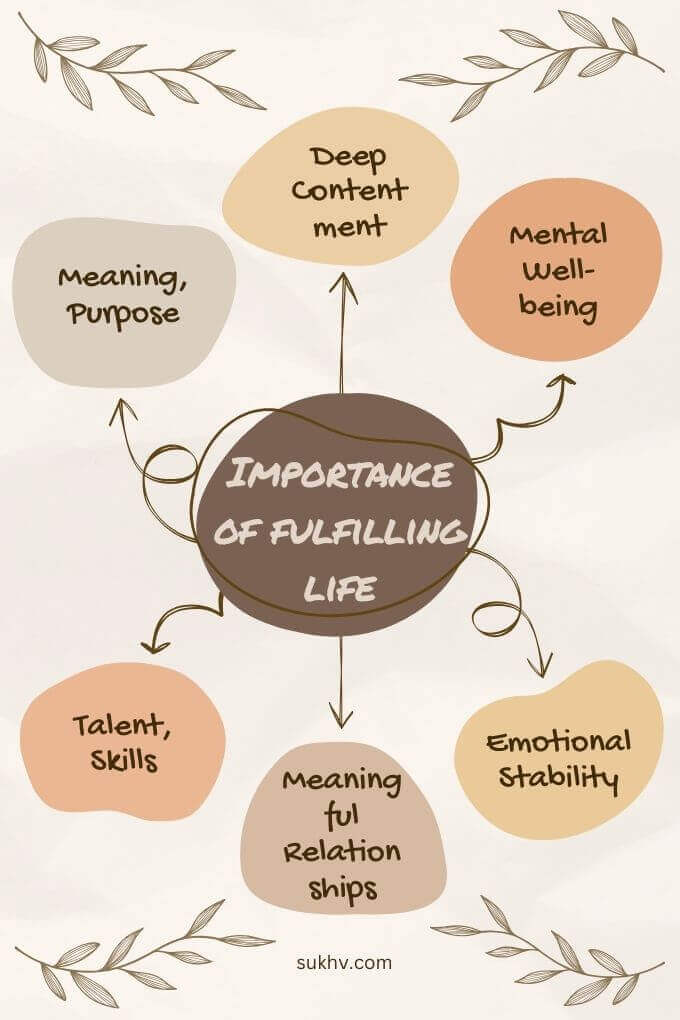
Fourth, such a life gives you emotional stability and mental well-being, empowering you to navigate life’s challenges confidently and persistently.
Finally, a fulfilling life brings deep contentment; apart from benefiting oneself it positively impacts the people around one. It may involve contributing to a higher cause that benefits society.
A fulfilling life is rich in meaningful relationships. It gives you emotional stability and mental well-being. Share on XImpact of Living an Unfulfilled Life
Living without fulfillment can significantly impact an individual’s mental health and overall well-being. Feeling that one’s life lacks meaning or direction can result in dissatisfaction, restlessness, and despair.
Without a strong connection to their passions and values or a clear vision for the future, an individual may feel stuck in a cycle of monotony, unable to reach their true potential. This lack of fulfillment can lead to chronic boredom and emptiness.
Over time, this unfulfilled state can diminish self-esteem, motivation, and overall life satisfaction, making it challenging to make any positive changes. Additionally, dissatisfaction and lack of purpose can permeate every aspect of one’s existence. It can stagnate one’s career, strain relationships, and diminish life’s quality.
The impact of living without fulfillment is a personal and intricate issue. Addressing the underlying factors that prevent you from finding happiness, contentment, and meaning in your life requires self-reflection, exploration, and willingness.
Now let’s come to the main point – how to live a more fulfilling life. Before or as you begin to create your path to happiness and fulfillment, you need to learn to maneuver some potholes that can obstruct your smooth progress.
4 Key Barriers That Stop You from Living Fully, And How to Overcome Them
Key Insight from This Section:
To live fully, you must overcome fear, negativity, outside pressure, and lack of discipline—each step freeing you to grow, act, and align with your true self.
What We Explore:
- Conquering Fear to Find Direction
- Challenging Negativity on Your Path
- Managing Outside Pressures
- Building Discipline for the Journey
1) Conquer Fear to Set Your Direction To Fulfillment
Avoiding Risk Hinders Living a Fulfilling Life: Get Courageous
Fear can prevent us from taking necessary steps towards our desired life. It can hinder our pursuit of dreams and our potential.

The fear of failure, judgment, or the unknown can lead to decisions based on avoidance rather than aspiration. Self-doubt and anxiety can prevent us from achieving goals and taking risks.
Conquering fear and embracing risks are vital skills for personal growth and success. This transformation requires shifting your mindset from fear and avoidance to courage and curiosity.
- The initial step involves identifying the specific fears that hinder your progress, such as the fear of failure, the unknown, or judgment from others.
- Once you’ve recognized the root of your anxieties, you can start challenging these negative thoughts and replacing them with more empowering beliefs. Visualization techniques, where you mentally practice facing your fears, can significantly boost your confidence and resilience.
- It’s crucial to begin with small steps, tackling manageable risks before progressing to larger challenges. Seeking support from trusted friends or a mentor can offer valuable encouragement and accountability.
- Furthermore, reframing risks as opportunities rather than threats can help you adopt a positive, growth-oriented perspective.
- With perseverance, you’ll become comfortable with uncertainty and embrace the excitement of pushing beyond your comfort zone.
Growth Through Setbacks: A Step Toward a More Fulfilling Life
When we encounter professional, personal, or interpersonal obstacles, we may give up or stay in our comfort zones. However, we can develop and expand to achieve personal growth and fulfillment during these difficult times.
By confronting challenges directly, you can build resilience and problem-solving skills and better understand yourself. Each setback is an opportunity for reflection, reevaluation of priorities, and discovering inner strength.
When you struggle and make mistakes, learning from disappointments, getting back up, and moving forward helps you develop the mindset needed for lasting personal growth. The lessons learned from challenges can help you appreciate your abilities, gain a broader perspective on life, and find a deep sense of purpose and fulfillment.
Struggles Can Lead You to Find Fulfillment in Life: Build Resilience
An often overlooked aspect of learning how to live a fulfilling life is the development of resilience. Resilience isn’t about being immune to pain; it’s about bouncing back, adapting, and growing stronger in adversity. It requires cultivating a flexible mindset, building inner strength, and seeking external support to navigate challenges.
This may include:
- practicing self-compassion,
- viewing setbacks as learning opportunities,
- establishing a strong social network,
- engaging in stress-relief activities, and
- developing problem-solving skills.
By embracing resilience, we turn difficulties into chances to grow.
I know from my experience it isn’t easy. But by regulating emotions, maintaining hope, and taking positive steps, you can cultivate the strength to conquer challenges and emerge from tough times as a stronger, wiser individual.
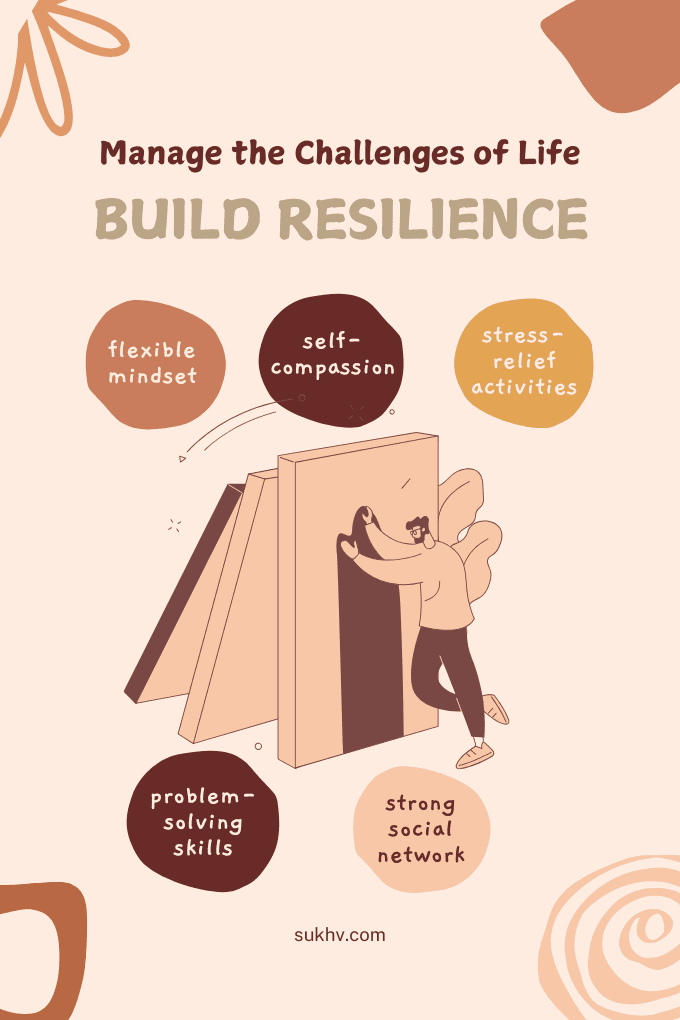
2) Challenge Negativity Blocking Your Path to a Fulfilling Life
Impact of Self-doubt on Achieving Fulfillment
Self-doubt can hinder personal fulfillment by eroding confidence, leading to hesitation and indecision. This mindset creates a cycle of inaction and missed opportunities due to fear of failure. It can result in seeking validation externally and avoiding challenges. Even highly skilled individuals can be paralyzed by self-doubt.
How Can You Challenge Negative Thoughts?
Negative thoughts and beliefs can weigh heavily on your mind, making it hard to feel happy or confident. Challenging them demands patience, self-compassion, and a willingness to embrace new perspectives. Yet the rewards of a more optimistic, resilient mindset make the effort worthwhile.
The good news is that there are effective techniques to help you handle these thoughts and regain control.
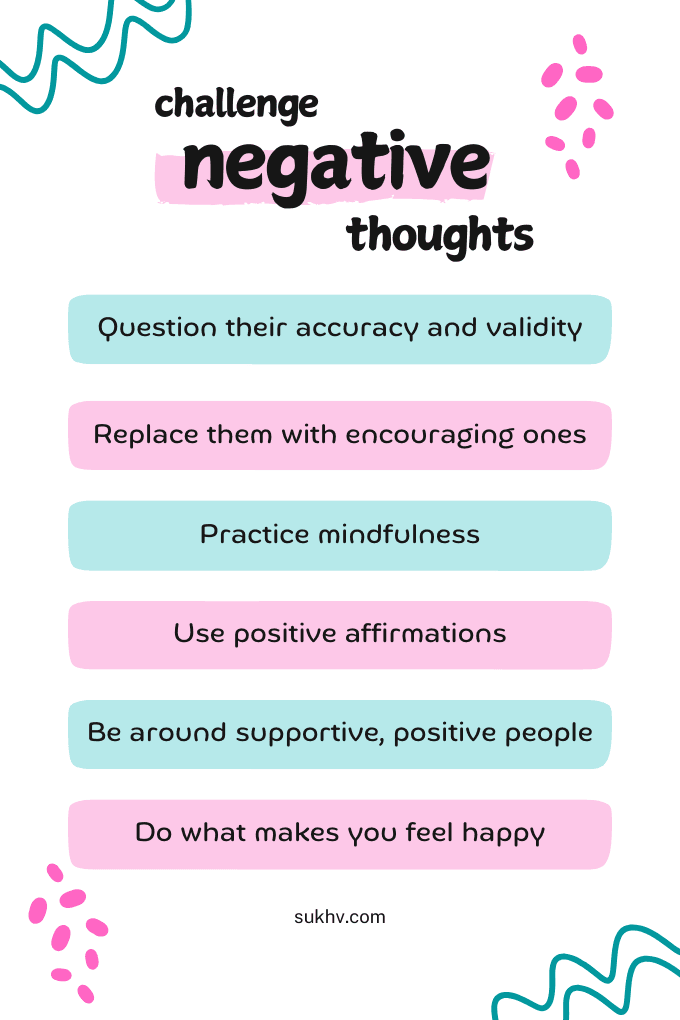
The following are practical strategies for controlling negative thinking, shifting your perspective, and building a positive mindset.
- When negative thoughts arise, it is important to challenge their accuracy and validity actively. These thoughts can often be pessimistic or self-critical, causing unnecessary distress. When you notice such a thought, take a moment to pause and assess it objectively. Determine if it is fact-based or a distortion of reality.
By identifying the cognitive distortions at play, you can reframe your thoughts. One such distortion is all-or-nothing thinking, where situations are viewed in black and white without any middle ground.
Another is catastrophizing, which involves exaggerating the negative aspects of a situation to make it seem worse than it truly is.
- As soon as a negative thought troubles you, replace it with a constructive and uplifting one. Think about happy memories, plans, or nice things people have said about you. The aim is to adjust your thinking swiftly to remain positive. In The Monk Who Sold His Ferrari, Robin Sharma introduces the concept of ‘opposition thinking’, grounded in the idea that the mind can hold only one thought at a time.
- Practicing mindfulness lets you concentrate on the present, helping you stop overthinking. By simply noticing your thoughts and feelings, you can lower your stress and find calm, making it easier to deal with everyday problems. It can also change your viewpoint on various situations, helping you understand better and make smarter decisions.
- Consistently using positive affirmations—whether you say them out loud, write them down, or think about them—reduces the influence of negative beliefs and encourages a focus on positive elements of life. Simple phrases like “I deserve love and success” can address insecurity. Although it can be difficult to alter negative thoughts, positive affirmations offer a method to take control of one’s thinking and shape a more positive future.
- Being around supportive and positive people can greatly impact how you view yourself. Spending time with those who encourage you makes it easier to release negative thoughts. They remind you of your worth and help you focus on your strengths. Instead of feeling bad about mistakes or challenges, their positive attitude motivates you to keep trying and to have faith in yourself.
- Engaging in activities that lift your mood can effectively reduce negative self-talk. Exercising, painting, or hanging out with friends changes your focus making it difficult for negative thoughts to take hold. Doing things you enjoy can boost your confidence and highlight your strengths, helping to protect you from harsh self-criticism.
3) Living a Fulfilling Life Takes Managing Outside Pressures
Societal Pressures Limit Growth – Overcome Them
Society’s expectations and norms can hinder an individual’s personal growth by imposing rigid standards.
From a young age, a person is bombarded with messages dictating how they should look and act and what they should achieve.
- Failing to meet these societal ideals can create a sense of inadequacy.
- The pressure to conform to them can suppress the authentic self, leading an individual to prioritize what is acceptable to others over their true desires and interests.
- Striving for external validation can result in burnout, anxiety, and disconnection from one’s inner values.
To navigate these challenges, you must balance acknowledging social expectations with having the courage to forge your unique path.
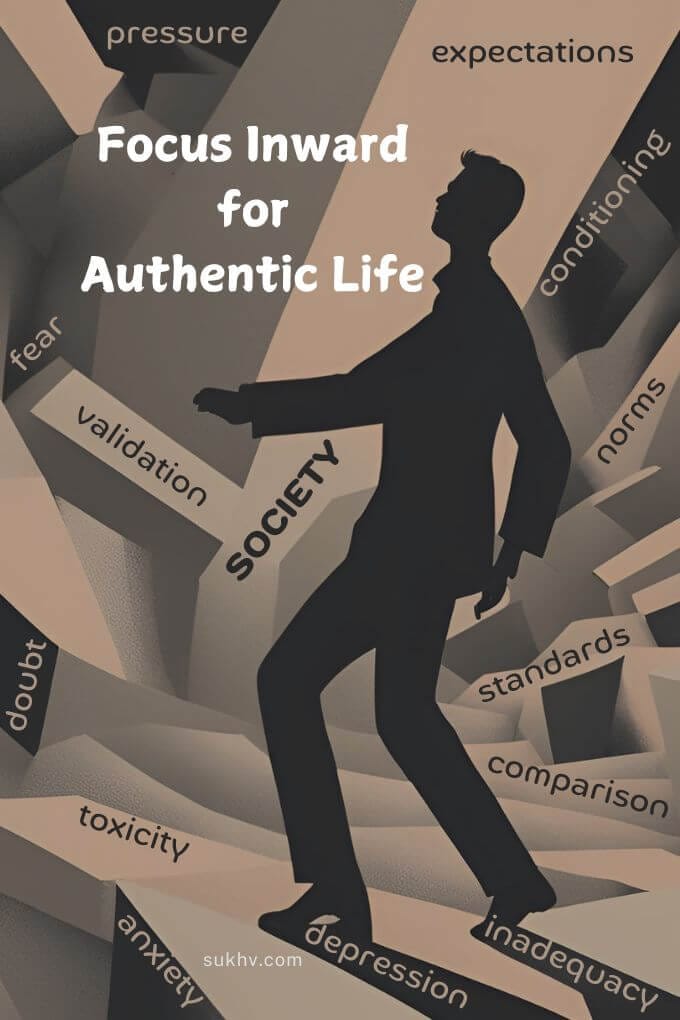
This involves tuning out societal pressures, focusing inward to rediscover genuine aspirations, and allowing yourself to grow authentically.
I achieved the courage to begin living an authentic life quite late in middle age. I know how difficult it can be to bring this change; it requires confronting fears and shedding conditioning. But it is crucial for achieving true personal growth.
Comparison Hurts Health – Focus Within
Comparing yourself to others constantly can significantly harm your overall health and well-being.
When you excessively fixate on how you fare against your peers, colleagues, friends, or social media contacts, you often overlook your unique abilities and achievements. This can foster feelings of inadequacy and poor self-esteem. You may face depression as you consistently sense that you are lacking.
Instead, focus inward and find satisfaction in your journey, rather than concerning yourself with external benchmarks. This internal focus enables you to be more compassionate towards yourself, establish attainable objectives, and discover happiness within without the weight of external contrasts.
Toxic Relationships Harm Happiness – Set Boundaries
I have had first-hand experience with toxic relationships. So I know that such relationships slowly diminish one’s self-esteem and happiness and weaken mental health.

Whether it’s a romantic partner, family member, or a friend, being in a relationship with someone manipulative, controlling, or emotionally abusive can have a significant negative impact on one’s life. They might keep quarreling with you, criticizing you, or exploiting your weaknesses.
The ongoing negativity can gradually weaken your confidence or, result in feelings of exhaustion, anxiety, and doubt. If this continues for a long period, it can even significantly harm your mental health and happiness.
So if you are unlucky to have such a relationship, you should establish clear boundaries to safeguard your emotional well-being. This could involve reducing contact with the toxic individual, refusing to tolerate their harmful actions, or terminating the relationship.
This may be challenging, but you should empower yourself to break away from the toxicity and regain control of your life. You deserve to be surrounded by individuals who support you rather than bring you down.
A toxic relationship slowly diminishes self-esteem and happiness – set clear boundaries to safeguard your emotional well-being. Share on X4) Build Discipline to Smoothen Your Journey to Fulfillment
Procrastination Hinders Progress – Overcome It
Many tend to procrastinate on crucial work-related or personal responsibilities or chores. I had also been guilty of the same. This behavior is driven by factors such as lack of motivation, feeling overwhelmed, or the desire for immediate gratification.
However, the repercussions of procrastination can be significant. Unattended tasks become larger and more daunting over time, creating a cycle of avoidance and pressure. It means postponing success.
Procrastination can also negatively affect mental health, productivity, and relationships.
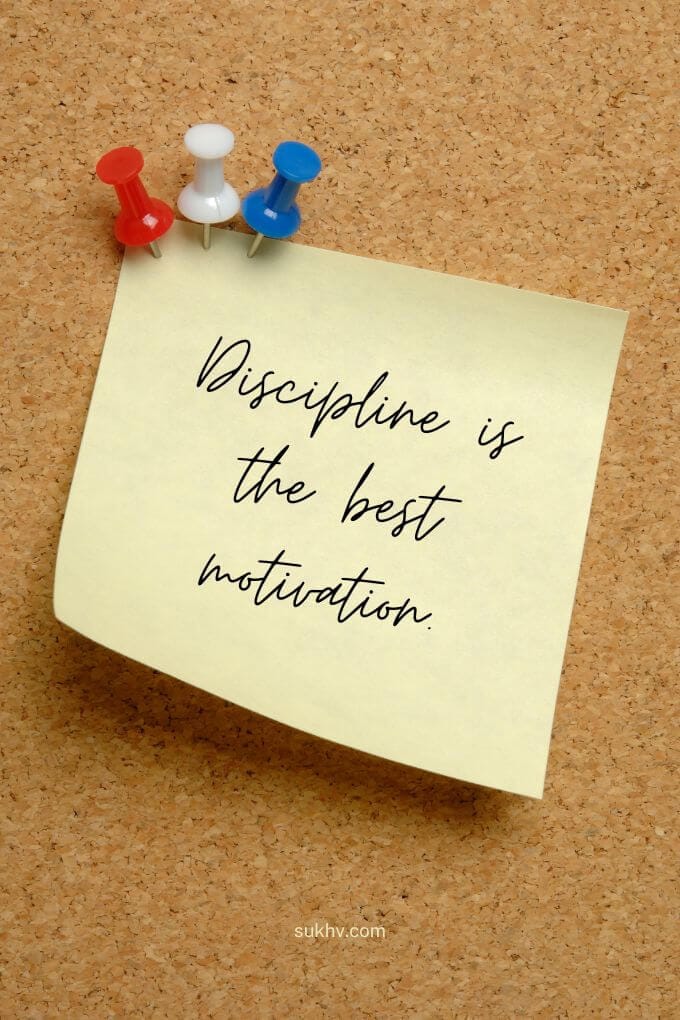
While it may be challenging, addressing tasks promptly offers immeasurable long-term benefits. It can bring a sense of accomplishment and open new opportunities. Overcoming the tendency to procrastinate allows you to surpass limitations and achieve your goals.
Inconsistent Routines Harm Health – Fix Them
Healthy habits and routines are essential for our well-being, but many struggle to maintain a stable schedule.
Inconsistent habits can negatively impact our physical, mental, and emotional health.
Without a reliable routine, our body’s natural rhythms are disrupted, leading to sleep issues, fatigue, and trouble focusing. This lack of structure can also lead to unhealthy eating habits and emotional instability.
Establish a routine, such as a morning meditation or regular exercise. It provides the stability needed to navigate daily challenges effectively.
Start Living a Fulfilling Life: 5 Transformative Practices
Key Insight from This Section:
A fulfilling life begins by aligning with your inner purpose, embracing growth, staying present, nurturing relationships, and giving back—each practice unlocks deeper joy, clarity, and meaning in your everyday experiences.
What We Explore:
- Discovering Inner Purpose
- Embracing Lifelong Growth
- Living Mindfully in the Present
- Building Supportive Relationships
- Finding Fulfillment Through Giving
After, or along with, committing yourself to overcome any hindrances as above, you are ready to work to fill your life with joy. Begin these five essential practices today to transform your life into a more fulfilling experience.
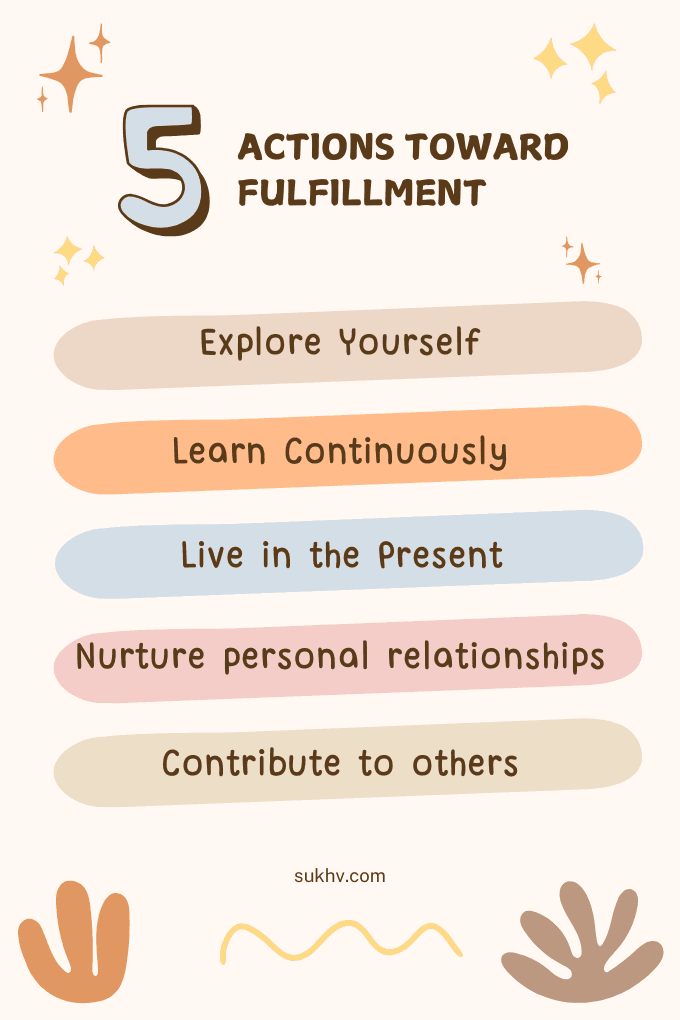
1) Discover Your Inner Purpose — It’s the Root of Fulfillment
Understand Yourself with Unjudged Thoughts and Emotions
You can become more self-aware by paying attention to your thoughts and feelings. Pause momentarily to acknowledge them as they arise, observing without judgment..
Attentively watch your inner experiences and acknowledge the flow of thoughts, feelings, and sensations without getting entangled or reacting impulsively. This approach allows you to understand things more deeply. Instead of labeling emotions as positive or negative, approach them with curiosity to understand their underlying messages.
This process of self-exploration helps you better understand your mind and heart, enabling you to live authentically and wholly. You uncover the rich depth of your being by going beyond superficial self-perceptions.
Meditation is a great way to help you in the above process.
Identify Your Core Values and Align Your Life
Your values are the guiding principles that influence your decisions, actions, and overall lifestyle. They represent what is most important to you – the beliefs and ideals that define your character. Engage in deep self-reflection to identify them.
Clarifying your key values empowers you to ensure that every aspect of your life, including your career, relationships, and daily activities, is congruent with and reinforces those core principles. This alignment cultivates a profound sense of authenticity, purpose, and clarity. Rather than drifting aimlessly or feeling pulled in various directions, you can make decisions that resonate with your true beliefs, leading to a life filled with passion, meaning, and satisfaction.
Align Your Talents and Passions with Life and Work
Everyone has distinct abilities, be it a talent for creative problem-solving, a deep empathy that fosters connections, or a relentless curiosity that inspires continual learning. By taking the time to evaluate your inherent skills and what truly motivates you, you open yourself to remarkable opportunities.
Aligning your work, hobbies, and overall lifestyle with these core passions enhances engagement, energy, and satisfaction. Instead of forcing yourself into roles or activities that don’t resonate with your true self, you can direct your energy towards authentic and significant pursuits. This could involve shifting to a career that better showcases your strengths or dedicating time to creative hobbies and volunteer efforts that spark your interests.
I found my passion in blogging after working in the financial field for over 27 years. You can find yours more timely in your life.
The key is to stay aware of what excites you and actively seek ways to integrate it into your everyday life. By doing this, you unlock your full potential and cultivate a deep sense of purpose and fulfillment that permeates every aspect of your life.
Evaluating what motivates you and aligning it with your work, hobbies, and overall lifestyle enhances engagement, energy, and satisfaction. Share on X2) Embrace Continuous Learning and Growth to Live Fully
Build a Lifelong Learning Mindset
Adopting a lifelong learning approach can be one of the most rewarding journeys a person can take.
By actively exploring new interests, embracing intellectual challenges, and nurturing curiosity about our surroundings, we invite enriching experiences and personal development.
Whether it involves starting a new hobby or reading extensively to enhance your knowledge, learning new things keeps your mind sharp, broadens your viewpoint, and revitalizes your spirit. The joy and fulfillment from mastering a difficult skill, gaining insights through study, or satisfying your natural curiosity about life’s complexities are undeniable.
See Failures as Opportunities for Growth
Thinking about our mistakes and failures without being harsh on ourselves can significantly aid our personal growth.

Often, we tend to criticize ourselves when things don’t go as planned, emphasizing our errors rather than considering how we can learn from them. Embracing a more positive outlook can change everything.
You create opportunities for meaningful change when you see your mistakes as important lessons rather than shortcomings. What caused the negative result, and how can you approach it differently next time? What insights have you gained about yourself or your skills? Viewing errors this way allows you to benefit from them, transforming setbacks into stepping stones for your progress.
Set Goals and Work Steadily Toward Them
Establishing and consistently pursuing clear, realistic goals is a proven way to succeed. Having a specific target and a plan creates direction and purpose, which can be highly motivating.
When the end goal appears overwhelming or distant, breaking it into smaller, manageable tasks makes the process easier. By focusing on one step at a time, progress builds steadily over time. Small improvements accumulate, and eventually, you reach heights that once seemed impossible.
Though I nowadays only want to immerse myself in the process, for most people working purposefully towards a goal is a dependable way to achieve significant results.
Cultivate Positivity and Surround Yourself with Uplifting People
At its core, a positive mindset focuses on the good, the possible, and the opportunities in life instead of fixating on the negative, the limitations, or the challenges. It means keeping an optimistic view and seeking solutions, even when faced with difficulties.
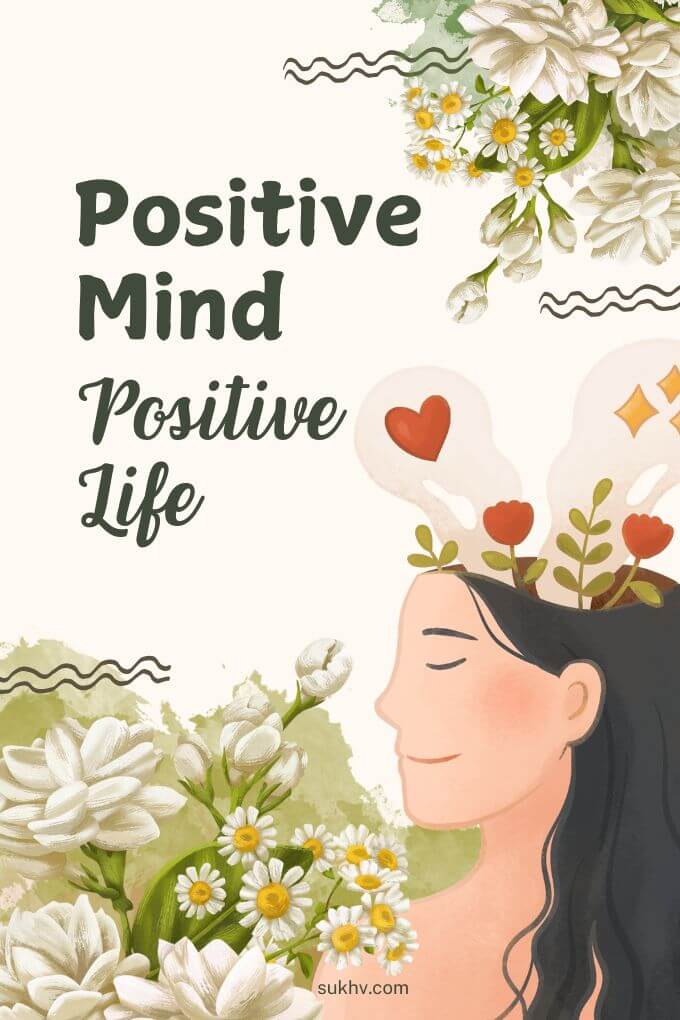
This shift in thinking can significantly affect how you perceive and react to the situations around you. By actively looking for the positives, concentrating on what you are grateful for, and trusting in your abilities, you unlock a world full of possibilities.
Additionally, surrounding yourself with positive people—encouraging friends, inspiring mentors, or motivational content—reinforces a positive mindset.
The influences you accept into your life can greatly affect your thoughts, feelings, and actions.
Intentionally creating a supportive and positive environment gives your mind the strength to overcome challenges, chase your aspirations, and fully embrace each day.
Practice Consistent Self-care
Regular self-care is vital for physical and mental health. It includes habits and activities that support our bodies, minds, and spirits. This can range from ensuring we get enough restful sleep and eat healthy foods to making time for relaxation, hobbies, and socializing.
Self-care is unique to each person; it requires careful consideration of individual needs and preferences to create effective personal strategies for health and happiness. For some, daily meditation or journaling can help manage emotions. Others might enjoy attending exercise classes or a relaxing bubble bath after a stressful day.
Nowadays I meditate or walk within the house as I take breaks from writing, run and exercise a little in the evening, and do a light reading before sleep.
Try different self-care practices to find what truly rejuvenates you, without creating extra stress or guilt. Consistent self-care can significantly reduce feelings of burnout, lower stress and anxiety levels, and enhance overall well-being. In today’s fast-paced world, taking time for self-nourishment is helpful and essential for leading a balanced and fulfilling life.
3) Achieve a Fulfilling ‘Present’ with Mindfulness
Release Future Worries and Past Regrets
Releasing concerns about the future or regrets about the past is essential for achieving peace and happiness.
It is easy to get overwhelmed by fears of what might happen or to fixate on past mistakes and lost chances. However, holding onto these thoughts prevents us from truly enjoying and valuing the present.
The future is unpredictable, and you cannot alter the past; you can only influence the now.
By letting go of these unhelpful thoughts and directing your energy toward the present, you can experience remarkable changes.

Photo by Darius Bashar on Unsplash
You become more balanced, centered, and capable of embracing each day. It allows you to fully engage with the people and activities around you instead of letting your mind wander.
While it can be challenging to set aside worries about what lies ahead or to stop reflecting on what has already happened, doing so can enhance overall well-being and quality of life.
Find Joy in Little Things and Express Gratitude
Pause and recognize the simple joys in a world focused on accumulating wealth and possessions. The real richness of life lies not in what we possess but in the relationships we build, the memories we make, and our appreciation for natural beauty and simple delights.
True wealth isn't in possessions, but in the bonds we forge, the memories we create, and the joy we find in simple moments. Share on XSharing a warm cup of coffee with someone special, enjoying a beautiful sunset, or listening to the calming sound of rain can feed your soul and offer a sense of fulfillment deeper than any material good.
By learning to slow down, staying present, and enjoying the uncomplicated joys around you, you free yourself from the endless cycle of desires and acquisitions. It opens the door to greater inner peace and a more meaningful life.
Engaging in gratitude activities, such as writing in a journal or expressing thanks to friends and family, helps you shift your focus from negative thoughts to positive ones. This change in thinking can lead to lasting improvements in your life, including better mental health, stronger relationships, and a more remarkable ability to handle difficulties.
When you sincerely appreciate the little things, you become more present and connected, noticing the beauty and abundance already in your life. So, the next time you are busy with your day, take a moment to pause, observe, and genuinely appreciate even the smallest blessings; you might be amazed at how it can change your outlook and your life.
Practice Mindfulness and Meditation to Stay Present

Taking a few minutes daily to quiet your mind, look within, and observe your breath, sensations, and thoughts as they come and go can help you escape the constant noise in your head.
This awareness lets you experience life more thoroughly instead of getting lost in past regrets or future worries.
Over time, mindfulness can empower you to handle life’s challenges with greater clarity and calm, instead of reacting impulsively. Whether a quick 5-minute session or a 30-minute practice, meditation gives you a chance to pause, find inner peace, and return to your daily activities feeling more centered and attentive.
Thus, incorporating mindfulness and meditation into your daily routine can help you live with more intention and fulfillment.
4) Nurture Relationships That Support a Fulfilling Life
Many unlucky people (myself included) find most of their lives mired in toxic relationships. And there’s no instant hope or support for some of them. These lonely people truly know the significance of a good relationship; only a blind person knows the true worth of eyes.
But for now, let’s talk about what’s manageable. Building and maintaining relationships is very important. In today’s fast-paced, digital world, it’s easy to lose touch with the people who mean the most to you – your family and friends. However, spending quality time with them is crucial for happiness and well-being.
When you focus on nurturing your connections, you allow yourself to experience joy, support, and a sense of belonging that feeds your spirit. It could be a regular dinner with friends, a weekend trip with your partner, or a meaningful conversation with an old buddy.
Putting in the effort to meet in person is a valuable way to strengthen your bonds. You connect deeply, share your successes and challenges, and experience a genuine closeness that social media cannot replicate.
Further, strong relationships contribute to better mental and physical health, helping reduce stress, lift your mood, and even support your immune system.
Spending quality time with loved ones in a lonely world is a powerful way to create a sense of belonging and a solid support network. Making meaningful relationships a priority can open doors to more joy, fulfillment, and overall well-being.
5) Contribute to Others — Fulfillment Follows Giving
Find Purpose in Helping Others
Spending time and effort to assist others can be incredibly rewarding for both the recipients and the helper.
Giving back not only allows you to spread joy and reduce suffering, but it can also foster feelings of gratitude, empathy, and connection in you.
Participating in community service, like organizing a neighborhood cleanup, or simply checking in on an elderly neighbor, helps you look beyond your daily concerns and understand the difficulties others may face. This awareness can motivate you to become more involved in civic activities and explore new ways to assist those in need.
Additionally, research indicates that acts of kindness are linked to better mental and physical health, as giving triggers the brain’s reward systems and releases hormones that promote happiness. By prioritizing helping others, you positively affect your community and invest in your health and personal development.
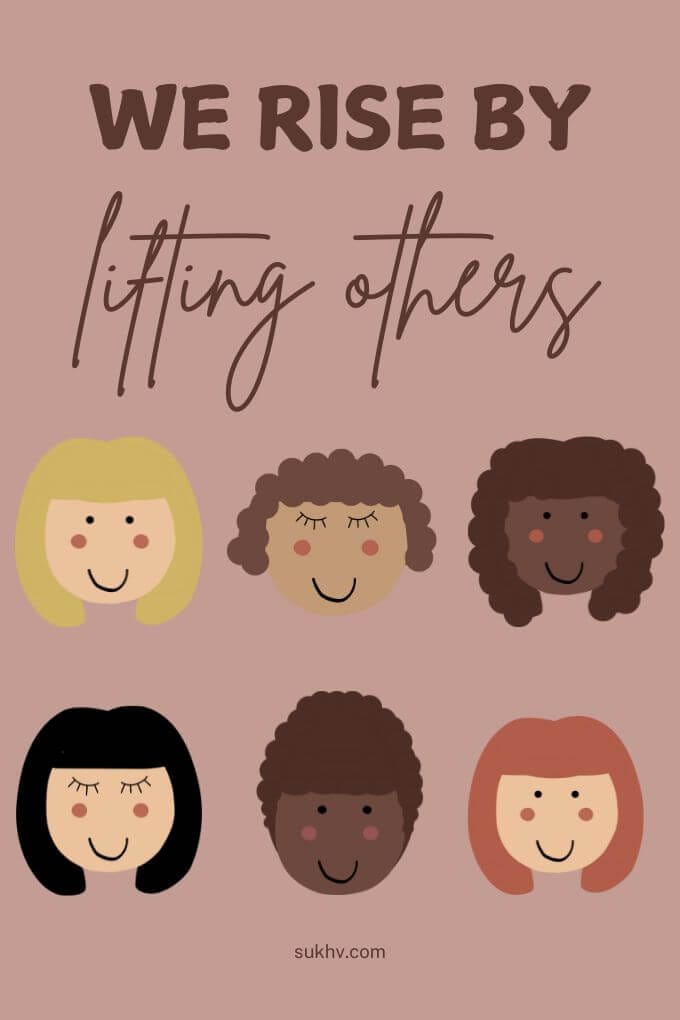
Ultimately, finding ways to share your time and skills in service to others is a powerful means of discovering greater meaning and purpose in life, and fulfillment.
Share Your Wisdom to Help Others Grow
Teaching and mentoring others is an incredibly fulfilling experience that enables us to share the knowledge, skills, and insights we have gained. I aim to have just that by writing this blog.
Sharing your knowledge and helping others grow is deeply fulfilling. Share on XAs a mentor, you guide someone on their path and offer support and advice that can significantly impact their lives. This process goes beyond simply sharing information; it involves building a strong relationship based on trust, understanding, and a sincere wish for the other person’s success.
Through careful teaching and sharing experiences, you can help your mentees gain the confidence and skills they need to achieve their goals. In return, this can lead to your personal growth and renewed enthusiasm. Watching someone thrive under your guidance, as they overcome obstacles and develop their abilities brings immense joy and satisfaction.
by dedicating your time and effort to helping others grow, you create a lasting influence that reaches well beyond yourself. This fosters a culture of learning that strengthens the entire community.
Let Your Heart Lead the Way
Key Insight from This Section:
Discover how following your heart—despite challenges—can lead you to a truly fulfilling life.
What We Explore:
- Passion Giving Deep Fulfillment
- Heart’s Guidance to Passion
While the earlier steps give you a clear path to a fulfilling life, embracing the mindset below will support you naturally as you move forward.
Do What You Love to Live a Deeply Fulfilling Life
You’re here for a reason—your own unique purpose. As Paulo Coelho writes in The Pianist in the Shopping Mall, “We each of us have our personal legend to fulfill, and that is all.” You should be doing what is “your fate, your joy, your reason for living” to bring true meaning to your life.
This sense of purpose helps you get through both joy and sorrow. But when you stop following your passion or lose sight of it, life can begin to feel empty and dull.
Do What You Love, No Matter the Circumstances
Nature doesn’t wait for perfect conditions. Whether your situation helps or hinders you doesn’t matter, what matters is whether you’re doing what you love anyway.

Your passions are personal, and not everyone will understand or value them.
In my own journey, I faced many challenges—inner doubts, lack of awareness, and even the indifference of those close to me. I was living by others’ expectations, unsure if I’d ever find what made me happy.
Then, one day, a sense of clarity and courage washed over me. That moment helped me begin to prioritize what matters: living a life that feels right to me.
To live a fulfilling life, you must follow what you love—what feels like your true reason for being here, not what others expect of you. Don’t worry if others notice, praise, or criticize what you do. What matters is that you know it’s right for you.
But how do you even know what you truly love?
Listen to Your Heart to Discover Your Passion
For a long time, I believed that every decision should be made with the mind. Especially in early adulthood, I often ignored what my heart was trying to tell me, even when I liked what it had to say.
Now I realize: your heart should guide your choices for well-being, and your mind should help put them into action.
Knowing what you love and choosing to follow it is essential for a fulfilling life. Your heart naturally knows what’s right for your soul. It connects you to your deeper truth and helps you focus on what you truly need.
Passion is emotional—it lives in your feelings. These feelings can help reveal what matters most to you.
Your mind, on the other hand, is made for thinking and planning. It connects you to the outside world and helps you navigate external realities.
While following your heart can lead to temporary setbacks, it fosters long-term well-being. Use your mind to handle short-term challenges
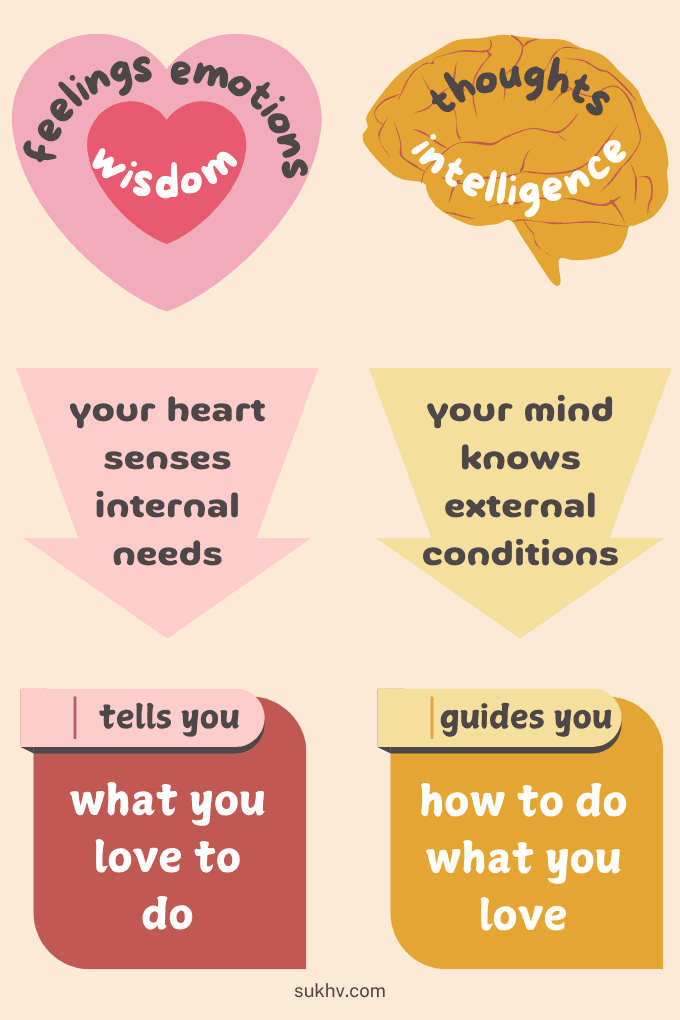
Ideally, let your heart choose the path, and let your mind help you walk it.
A fulfilling life comes from doing what you love—not what others expect of you. The simplest way to discover what you love is to listen to your heart. Share on XConclusion: Commit to Living a Fulfilling Life
There’s nothing else in life like achieving fulfillment. I know it well because I long neglected it, paid the price, and am now trying to make the rest of my life the best of it.
Your life’s fulfillment is linked to your values, beliefs, and inner desires. A fulfilling life is an immensely personal journey. It keeps you fully alive and satisfied. Most people yearn for one but find it elusive.
A fulfilling life infuses everyday activities with meaning and purpose, leading to emotional stability, a healthy mind, and deep contentment.
Living a fulfilling life requires overcoming the fear of failure, taking risks, negative thoughts, limiting beliefs, external pressures, and a lack of discipline.
Discover your values and passions, commit to personal growth, learn to live in the present, nurture meaningful relationships, and contribute to others. The effort pays off with a deeper purpose and joy in life.
Follow your heart, not someone else’s expectations. To discover what truly fulfills you, listen to yourself. Why not start living a more fulfilling life today?
Learn more; check out our dedicated Fulfilling Life section.
What’s YOUR experience about personal fulfillment? I’d love to know what you think through your comment below.
My blog assists you in navigating life’s challenges with clarity and confidence. As someone in my fifties with diverse experiences who has overcome unique emotional hurdles, I share insights to guide you toward a fulfilling life. Read More